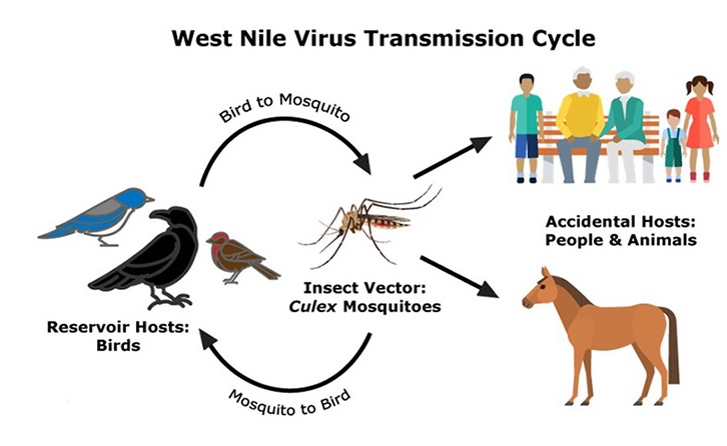

30th May 2022 (6 Topics)
Context
The Kerala health department is on alert after the death of a 47-year-old from Thrissur due to the West Nile Virus.
West Nile Fever:
- West Nile Fever is a disease caused by the West Nile Virus.
- West Nile Virus (WNV) is a member of the flavivirus genus and belongs to the Japanese encephalitis antigenic complex of the family Flaviviridae.
- Flavivirus is a group of positive, single-strand RNA viruses which mostly have arthropod vectors, and cause a number of serious human diseases such as yellow fever, dengue, encephalitis, hepatitis C, and West Nile Fever.
- West Nile virus generally spreads to humans and animals from bites of infected mosquitoes.
- c act as the principal vectors for transmission.
- Mosquitoes get infected and carry the virus after biting infected birds.
- It cannot infect another human from casual contact with an infected person or animal.
Symptoms:
- The disease is asymptomatic in 80% of the infected people.
- The rest develop what is called the West Nile fever or severe West Nile disease.
- In these 20% cases, the symptoms include fever, headache, fatigue, body aches, nausea, rash, and swollen glands.
- Severe infection can lead to encephalitis, meningitis, paralysis, and even death.
Outbreaks:
- West Nile Virus (WNV) was first isolated in a woman in the West Nile district of Uganda in 1937.
- It was identified in birds (crows and columbiformes) in Nile delta region in 1953.
- Before 1997 WNV was not considered pathogenic for birds, but at that time in Israel a more virulent strain caused the death of different bird species presenting signs of encephalitis and paralysis.
Outbreaks in India:
- The virus was first reported in the state in Alappuzha in 2006 and then in Ernakulam in 2011.
- In 2019, a six-year-old boy in Malappuram district had died of the same infection.



